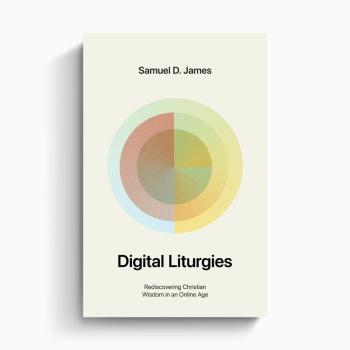Review of Real Marriage by Mark and Grace Driscoll
By COYLE NEAL
First, the basics: this is a book about marriage. Real Marriage, not that fake stuff you see on TV. And, apparently, not that fake stuff you read about in most Christian books either. At least, so the back of the book claims. “This is not”, we are assured in letters that are both bold and italicized, “one of those books” that “assume the author did it right”, “barely mention friendship”, or “use ‘intimacy’ as code for ‘sex.'” In reality, much of this book is pretty much the straight-forward Evangelical line on marriage. Which is not to say that it’s not a useful or important book, just that there’s nothing revolutionary in it. Of course, if there were something revolutionary in it, that would be a problem in itself since Christians really aren’t supposed to be believing “new” things…
The Driscolls break the book into three sections: Marriage (five chapters, a little under a hundred pages); Sex (five chapters, a little over a hundred pages); and “The Last Day” (one chapter, about thirteen pages of questions and hints intended to help guide couples in examining and directing their marriage). I’ll treat each section in turn.
The Marriage section is the one that has been getting the most praise out there amongst the reviewers, largely because the Driscolls talk about the importance of friendship in marriage. This is not something Christian books on marriage tend to do, mostly because “friendship” is not something the Bible generally talks about as relating to marriage. Which, for whatever it’s worth, suggests that friendship is perhaps less important in the grand scheme of things. You CAN be married without necessarily being the best of friends, and even have a good marriage in doing so. Nonetheless, I think it is interesting and useful to have someone at least begin to think through the place of friendship in marriage. This section is also where the bulk of the Driscolls’ own story is shared, which contains a lot of fairly intimate details about struggles they have had in their relationship, both before and after marriage.
The section that has been getting the most flak is, of course, the Sex section. “Wait, what? A ‘sex’ section? Did Mark Driscoll really make a public statement about sex? That doesn’t seem like him at all. He’s usually so reserved and prudish.”
By and large, this section is fine. Most of what they have to say is not only fairly standard, but has been said repeatedly even in Evangelical works like Intended for Pleasure or Sheet Music. Where the Driscolls have received some mild-to-severe rebuke is specifically concerning the chapter “Can We _____?”, in which they proceed to discuss the various sexual alternatives and their morality. In attempting to answer the question contained in the chapter title, they ask three questions: 1. Is it lawful? (the answer is usually “yes”); 2. Is it helpful? (the answer usually depends on circumstance); 3. Is it enslaving? (if the answer is “no”, knock yourself out; if “yes”, then, well, that provides the answer to the first two questions). And if you want to know more about this section, read it yourself.
The third section is the shortest and has been mostly overlooked in the reviews; yet I think it is likely the most important one. Whether or not one agrees with the first two sections, there are some good, practical questions here across a broad spectrum of topics that frankly could provide years of thought and conversation for a couple seriously dedicated to improving their marriage. Of course, by the time you actually get to this chapter after wading through all the friendship, marriage, and sex it’s likely you’ll be too exhausted to effectively analyze anything…
Okay, that’s the summary. So what do I think of the book? Well, I still don’t know. I will say that a major gap in the material is that in a whole book on marriage, children are not mentioned at all. Granted, it’s a book on “marriage” and not “parenting.” And of course these days you can’t assume that marriage=children (or vice versa). Nonetheless, I suspect it’s a topic that shouldn’t be ignored.
Beyond that, I’m not sure that I agree with most of the criticisms that have been leveled against the Driscolls. The two big ones are 1) they’re revealing far too much of their own married life (they use their own marriage mostly as examples of what NOT to do), and that Mark is potentially sinning against his own wife in doing so; and 2) this material is best handled in private, not in a public forum like a book. I think I would suggest that 1) presumably he and his wife discussed this and agreed on how much of their intimate life was appropriate for public consumption, especially since she co-wrote the darn thing. 2) I know of no Biblical injunction against discussing sex in public, and frankly our society could use some truth out there amidst all the cultural messages being sent.
Having said both of those things, I think the main utility of the Driscolls’ book is that it raises good questions and stimulates good conversation. I would love to see this book written by a better writer who is less of a bomb thrower and more of a thoughtful theologian. I don’t know who specifically, but, you know, someone.
I received this book free from Booksneeze on the condition that I review it, but they have yet to try to bribe me to write a good review.












